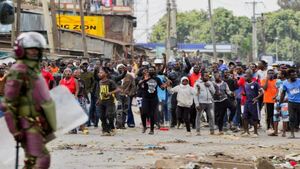His comments come in the wake of a directive by the Communications Authority of Kenya ordering television and radio broadcasters to cease live coverage of national protests held on Wednesday.
The demonstrations marked one year since the deadly anti-tax protests of 2024, which left over 60 people dead. The decision to restrict live broadcasts has triggered concern across civil society, with critics warning that it undermines transparency and the right to public information.
According to Bigambo, the country’s democratic fabric relies on the freedoms outlined in Chapter 4 of the Constitution, including the right to protest peacefully. He stressed the importance of recognising and defending these rights, particularly in times of heightened political tension.
The broadcast ban, viewed by many as a form of censorship, has drawn backlash from media freedom organisations and opposition leaders, who argue that suppressing coverage during key moments of public mobilisation only serves to fuel mistrust and restrict civic engagement.
Bigambo called on government officials, political parties, and civil society actors to remain vigilant in upholding the principles of nationhood and constitutional democracy. He said fundamental rights are not merely symbolic but form the foundation upon which the country’s democratic identity stands.
No detailed explanation has been issued by the Communications Authority, but observers warn that increasing pressure on the press may signal a broader attempt to shrink the democratic space in Kenya.
--ChannelAfrica--












